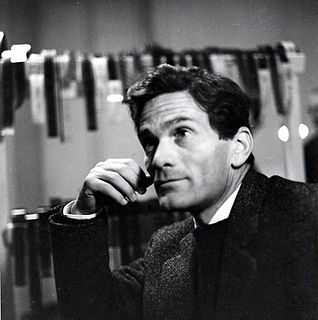A Quote by Wendell Pierce
The role of culture is that it's the form through which we as a society reflect on who we are, where we've been, where we hope to be.
Related Quotes
Karl Marx left it to others to find the way beyond capitalism to a higher form of society. He saw his role as giving them as accurate a theory as he could of how capitalism works, which would also show them the reasons why it needs to be abolished and replaced by a freer and more human form of society.
Through death you find yourself, because you no longer identify with form. You realize you are not the form with which you had identified neither the physical nor the psychological form of "me". That form goes. It dissolves and who you are beyond form emerges through the opening where that form was. One could almost say that every form of life obscures God.
And, because my role in society - or any artist or poet's role - is to try to express what we all feel. Not to tell people how to feel, not as a preacher, not as a leader, but as a reflection of us all. And it's like that's the job of the artist in society, not to...they're not some alienated being living on the outskirts of town. It's fine to live on the outskirts of town, but artists must reflect what we all are. … If that's taken it too much on meself, I feel that artists are that - they're reflections of society... Mirrors.
There is the specter of "realism" that is still haunting Chinese contemporary art - that art is only an instrument, an instrument to reflect society, that it must be useful for society. Also, I have noticed many Western media outlets are very insistent on understanding contemporary art in China through this kind of realist approach. Sometimes I even sense that they are intent on, as we say in China, "picking bones of politics out of an egg of art." Or perhaps they see art as merely an instrument to reflect society.
Almost by definition, secularism cannot be a future: it's a present-tense culture that over time disconnects a society from cross-generational purpose. Which is why there are no examples of sustained atheist civilizations. "Atheistic humanism" became inhumanism in the hands of the Fascists and Communists and, in its less malign form in today's European Union, a kind of dehumamism in which a present-tense culture amuses itself to extinction. Post-Christian European culture is already post-cultural and, with its surging Muslim populations, will soon be post-European.
The foreign audiences are somewhat surprised and happy to find an American film that asks questions about American culture. There's a certain kind of cultural imperialism that we practice. Our films penetrate every market in the world. I have seen and have had people reflect to me, maybe not in so many words or specifically, but I get the subtext of it - they're somewhat charmed and surprised and happy to see an American film reflect on our culture. Because they see other cultures reflect on our culture but they don't see US culture reflecting on itself in quite the same way.
A dreaded society is not a civilized society. The most progressive and powerful society in the civilized sense, is a society which has recognized its ethos, and come to terms with the past and the present, with religion and science. With modernism and mysticism, with materialism and spirituality; a society free of tension, a society rich in culture. Such a society cannot come with hocus-pocus formulas and with fraud. It has to flow from the depth of a divine search.



































